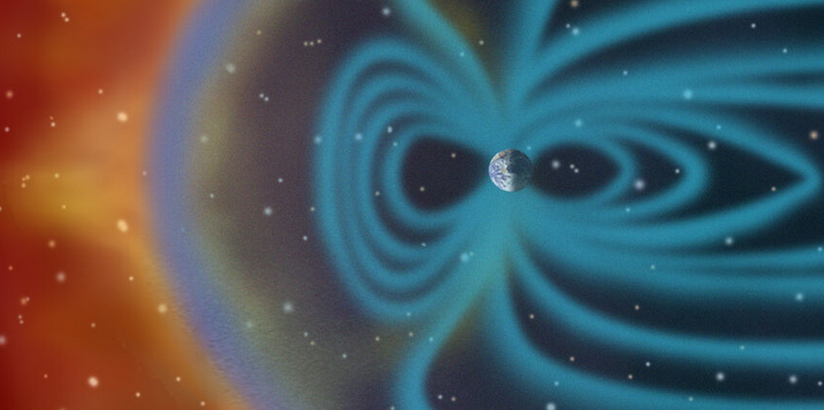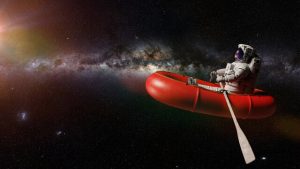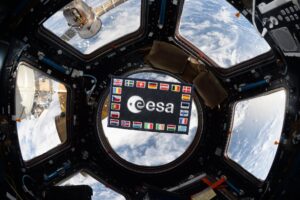ESA, China SMILE mission passes launch tests
22nd Feb 2023
China and Europe’s SMILE mission to explore the Sun’s connection with Earth has successfully completed joint tests of its satellite and rocket and is on track to launch in 2025. The mission, called the Solar wind Magnetosphere Ionosphere Link Explorer, will see a satellite launch from the Kourou spaceport in French Guiana from either an Ariane 6 or Vega-C rocket. It will go on to study the Sun’s impact on Earth’s environment for three years in a highly inclined, highly elliptical orbit around Earth.
Despite ongoing delays of the launch and geopolitical tensions between Europe and China, this mission marks an important collaboration between the two parties. This latest test also marks the first on-site exchange between the two since January 2020 due to COVID-19.
SMILE – the mission
The SMILE project was selected in 2015 out of 13 other proposals, and became the first deep mission-level cooperation between the European Space Agency and China. It is a joint project with the National Space Science Centre of the Chinese Academy of Sciences and ESA. The satellite is being built by the Institute of Microsatellite Innovation of the Chinese Academy of Sciences (CAS).
The satellite’s objective is to study the Earth’s magnetic environment – known as its magnetosphere – to understand its connection with the Sun. “It will do this by observing the flow of charged particles streaming out from the Sun into interplanetary space (the solar wind) and exploring how these interact with the space around our planet”, ESA explains.
While several spacecraft study the Sun already, SMILE will focus on individual weather events, like solar winds, or magnetic storms caused by coronal mass ejections.
Successful tests
According to CAS, the latest news reflected a joint satellite-rocket test of the first prototype of the satellite. This included the successfully completed interface docking, satellite separation and impact tests, which all occurred at the beginning of 2023. It came after the three cabins that make up the SMILE structure were transported to ESA by sea in December 2022.
CAS also explained this test achieved three firsts for China, including the first export of a Chinese satellite to ESA, the first integration and assembly of a Chinese satellite at ESA, and the first docking and separation impact test of a Chinese satellite with a European carrier. CAS said that “the results met the requirements of the indicators, and at the same time it also verified the correctness of the joint simulation of the Chinese-European satellite-rocket coupling model, and further confirmed the positive technical status of the large-scale systems of the SMILE mission.”
The tests follow the delivery of the payload module to China in March 2022 to complete the qualification of the satellite.
Delays push SMILE years off track
Like most missions in the space industry in the past few years, the COVID-19 pandemic and supply chain issues have pushed SMILE’s launch date back several times. SMILE project manager David Agnolan told SpaceNews:
“SMILE was very early on in 2016 intended for launch in 2021. Following initial studies and programmatic arrangements for the mission, the launch date was revised to be towards end-2023 to mid-2024 on the basis of which it was adopted by the ESA Science Programme Committee (SPC) in 2019”.
He continued: “Following a number of technical difficulties and programmatic evolutions, among which a significant impact due to Covid, the development faced a one-year delay. The mission is on-track for launch in 2025, which will be confirmed at the Critical Design Review foreseen to take place mid-2023.”
Now its latest tests have been completed, the team will head over to Spain in April to carry out the docking test with the European load cabin. Then, from May to September, the team will go to Germany to carry out the docking test with the European measurement and control station data transmission station, CAS said.




![ESA’s JUICE Mounts Onto Ariane 5 Ahead Of Launch [UPDATED] ESA’s JUICE Mounts Onto Ariane 5 Ahead Of Launch [UPDATED]](https://orbitaltoday.com/wp-content/uploads/2023/02/ariane-5-juice-mission-300x169.png)


Thank you for your comment! It will be visible on the site after moderation.